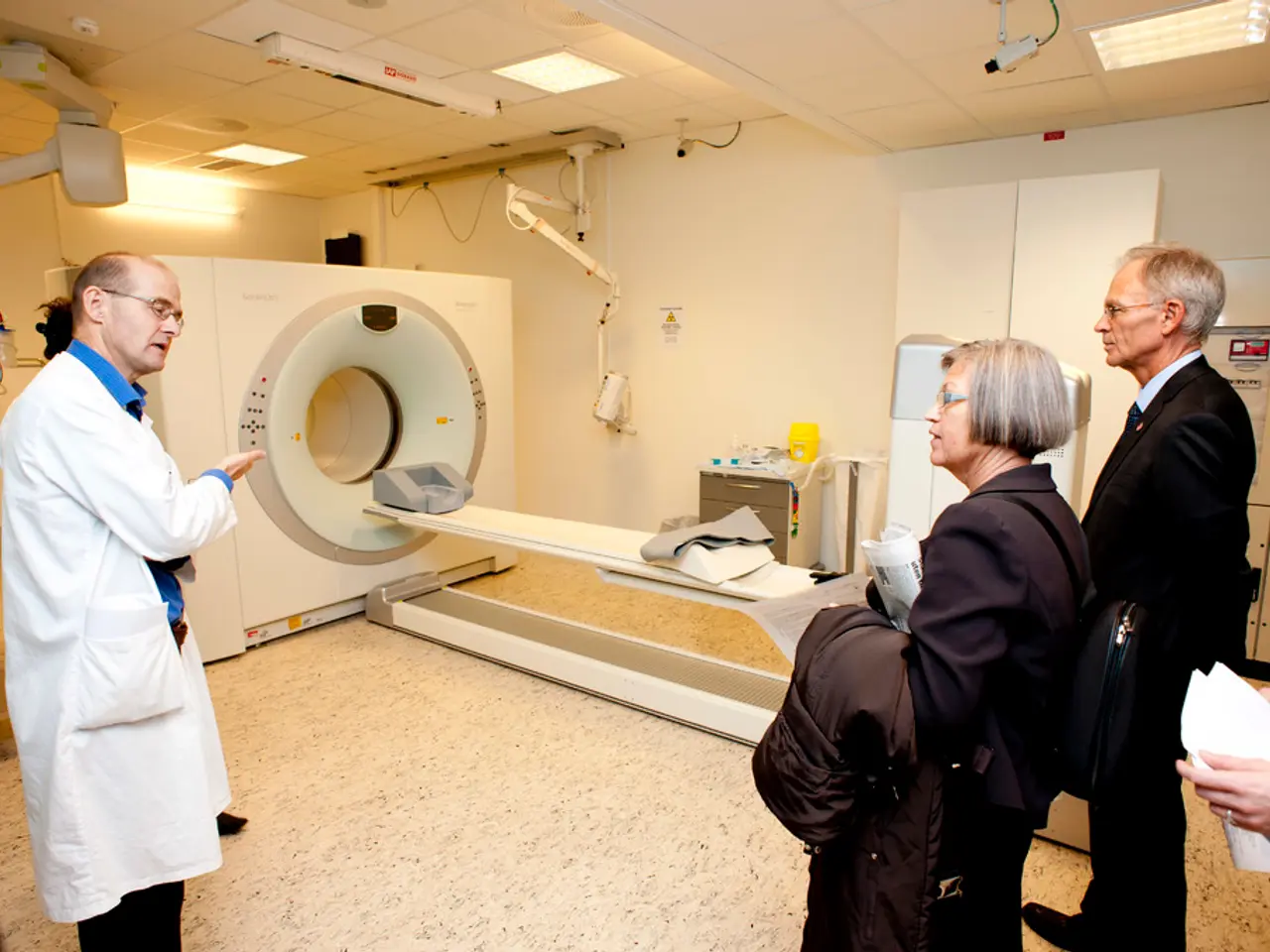Medical guidance during a global health crisis
In the midst of the COVID-19 pandemic, telemedicine has emerged as a vital tool in alleviating the strain on house and specialist doctors. This digital health revolution, which allows patients to consult with licensed doctors via video call, WhatsApp, or other applications, is transforming the way healthcare is delivered, particularly in Germany.
A recent study by the University Hospital Dresden, titled "Outpatient medical care in the COVID-19 pandemic from the patient's perspective," found that more than half of the surveyed doctors now offer video consultations, a service previously rejected by around 60 percent of all surveyed physicians in 2017 [6]. This shift is a testament to the growing acceptance and adoption of telemedicine.
One such provider of online medical consultations and connected pharmacy services is DoktorABC. This platform offers medical advice and treatment without the need for a personal appointment or a visit to a pharmacy. The service includes a survey covering aspects of physical and mental well-being, living conditions, and the current medical care situation [2].
The trend of ordering prescription medicines online is on the rise, with approximately 58% of consumers in Germany now ordering their medicines from online pharmacies [1]. Non-prescription medicines still dominate the online pharmacy market, but every sixth person (17%) orders prescription medicines [1]. After an online prescription is issued, the connected pharmacy sends the prescribed medicines free of charge on the next working day [2].
Patients have recognized the benefits of virtual consultations, with increased flexibility and time savings being the main reasons [3]. Travel time can be significant, and quicker access to specialists is common with virtual consultations, avoiding long waiting times. This is especially crucial during pandemics when the outpatient medical sector shoulders the main burden of caring for the population, whether it's for chronically ill patients or the majority of COVID-19 patients [4].
Telemedicine helps alleviate the burden on healthcare providers by providing an alternative to face-to-face visits, decreasing patient exposure to potentially infected environments and lowering the risk of disease transmission among healthcare workers and patients [1][4]. It also supports specialist services in remote or underserved areas, overcoming geographical and logistical barriers that are especially challenging during pandemics [3][5].
Providers of telemedicine examinations are usually well-trained and experienced in asking the right questions, ensuring that patients receive comprehensive and accurate care [5]. By limiting in-person contacts, telemedicine aids infection prevention, reducing hospital-acquired infection risks among patients and staff [4].
The University Hospital Dresden's survey aims to show how patients experience medical care and what could be improved from the patient's perspective in a pandemic situation [6]. With specialist outpatient physicians playing a central role in caring for the population during the pandemic, the insights gained from this study could pave the way for improved telemedicine services and patient care.
References: 1. bitkom 2. DoktorABC 3. Deutsche Apotheker-Zeitung 4. American Medical Association 5. World Health Organization 6. University Hospital Dresden
Science and health-and-wellness are intertwined in the recent surge of telemedicine, particularly during medical-conditions like the COVID-19 pandemic. For instance, platforms like DoktorABC offer comprehensive online medical consultations and pharmacy services, aiming to improve patient care by providing convenience and reducing hospital-acquired infection risks.




